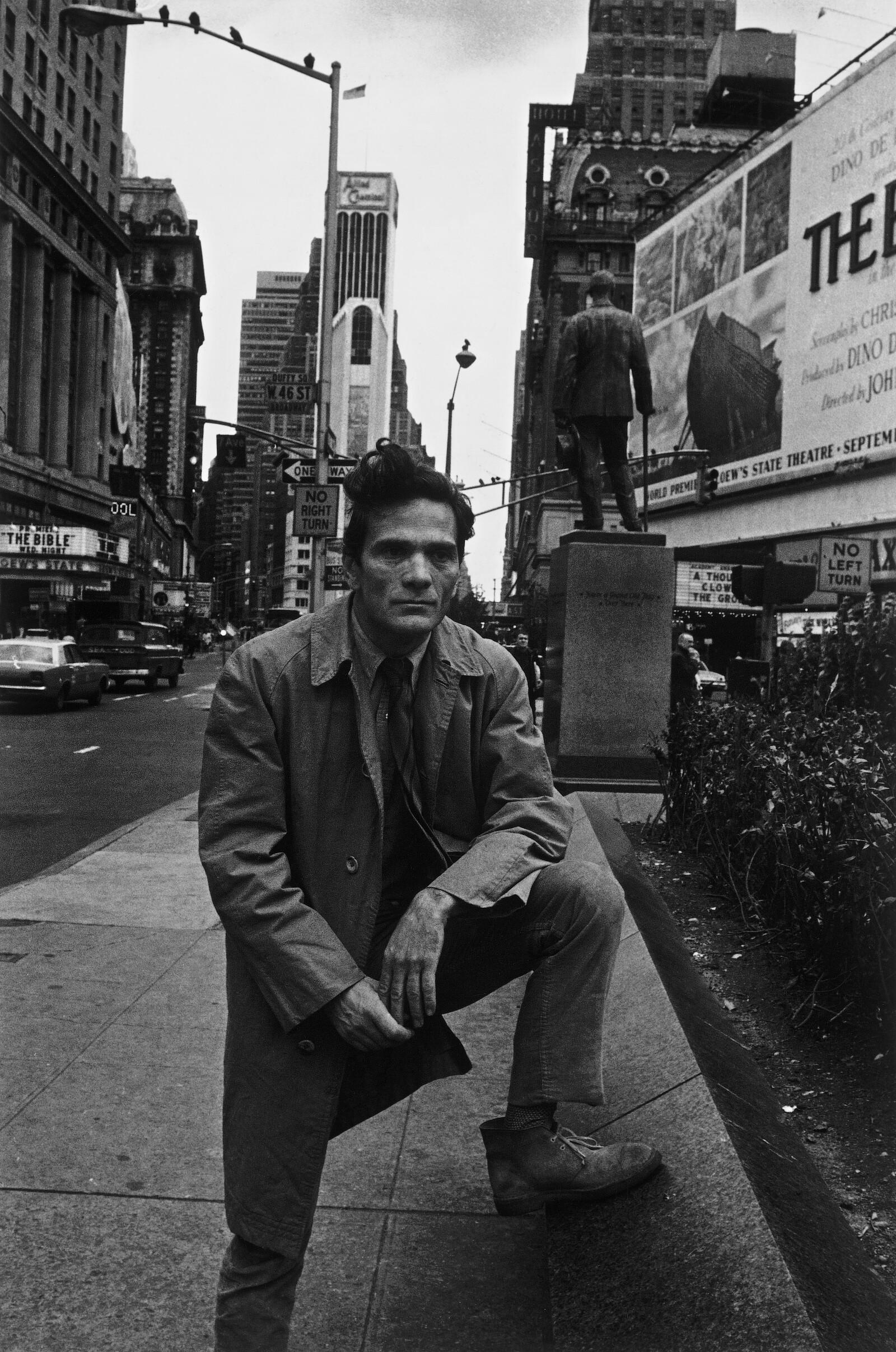February 12–May 31, 2020
735 Anderson Hill Road
Purchase, NY 10577
USA
Hours: Wednesday–Sunday 12–5pm
T +1 914 251 6100
nma@purchase.edu
“Indisputably the most remarkable figure to have emerged in Italian arts and letters since the Second World War.”
Pier Paolo Pasolini (Italian, 1922–75), one of 20th-century Europe’s leading intellectuals, was known for his prolific work as a poet, writer, and film director, who railed against government corruption, materialism, consumerism, and political and social repression. Pasolini will be the focus of Pier Paolo Pasolini: Subversive Prophet, an important exhibition showcasing the artist’s wide range of work and influence, that will on view at the Neuberger Museum of Art, Purchase College, SUNY, from February 12 through May 31, 2020.
A blunt and controversial figure, Pasolini often faced harsh rebuke. His unrelenting critiques of materialist values, the bourgeoisie and its institutions, and the destruction of Italy’s culture and traditions, were carried by media outlets, earning him an international reputation as a leading public intellectual. He championed the disinherited and viewed the intellectual as a savior of society.
“Outspoken and subversive, Pasolini made no concessions to anyone and often deliberately enraged those in power,” comments Patrice Giasson, Alex Gordon Curator of Art of the Americas at the Neuberger Museum. “Yet, Pasolini left three decades of amazing artistic production full of complex and rich themes that are as relevant today as they were then. The goal of this exhibition is to give American audiences the chance to discover his work.”
Excellent examples of that output are contained in the Neuberger Museum’s two-part exhibition, which opens with an exploration of Pasolini’s reception in the Americas (Brazil, Argentina, Mexico, and the United States). Included are homages to Pasolini by two Latin American artists: the Chilean, New York–based artist Alfredo Jaar, artist, architect, and filmmaker, who loaned six works to the exhibition, including his short cinematic tribute to Pasolini; and the late Antonio Frasconi, whose artist’s book In Memoriam, Pier Paolo Pasolini: Una Disperata Vitalitá explores the artist’s tragic death.
During the 1960s, Pasolini twice visited the United States and met with countercultural and political activists, including university students and members of the Black Panther movement. He also sat for Richard Avedon, who created a series of portraits of Pasolini. To the late Susan Sontag, American writer, filmmaker, philosopher, and political activist, Pasolini was “indisputably the most remarkable figure to have emerged in Italian arts and letters since the Second World War.”
The second part of the exhibition is devoted to Pasolini’s powerful creativity and features his poetry, novels, paintings, drawings, and films. His drawings and sketches, several examples of which are reproduced for the exhibition, are precious testimonies of the people he admired. Giasson points out that Pasolini had a powerfully discerning eye. “He studied art history in Bologna and this really had an impact on his filming.” There are obvious references to Andrea Mantegna’s “Dead Christ” in Il Decameron, one of Pasolini’s 12 films, and Piero della Francesca and other Renaissance painters in The Gospel According to Matthew (1964). Eleven costumes for Pasolini’s theatrical ventures, designed in Rome by Danilo Donati for Farani, including the one used by Pasolini in The Canterbury Tales, also are showcased.
Pasolini’s voice was forged during the rise of Fascism and Communism in the 1930s, the war years, and post-war upheaval. Specifically, he addressed what he viewed as the universal homogenization of society, the dangers of capitalism and excessive consumption, the growing inequality between poor and rich, and hypocrisy and repression in social and political spheres.
“To me, Pasolini was a subversive prophet, a civic poet, a barometer,” says Giasson. “With Pasolini, nothing was off the table. He could talk about everything, including the ways we behave, our sexuality, and our political inclinations. He also understood and railed against the way Italy and the rest of the Western world were heading—into a uniform, universal, standardized society—even before the idea of globalization took hold. My hope is that through this exhibition, visitors will connect with the voice of a true humanist, who dedicated his life to making this world a better place in which to live.”


